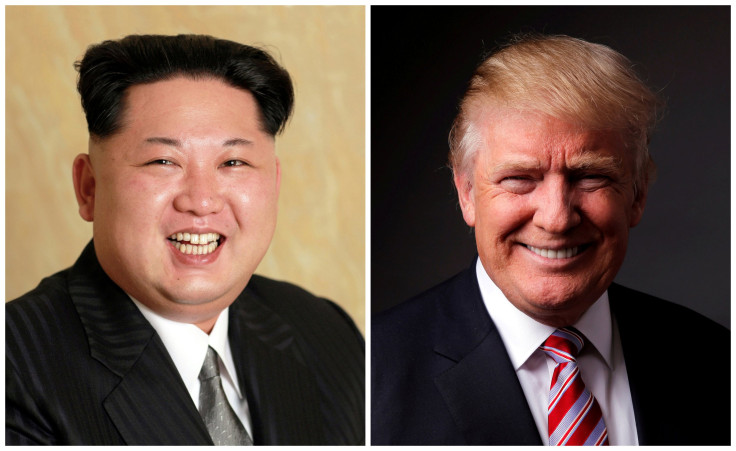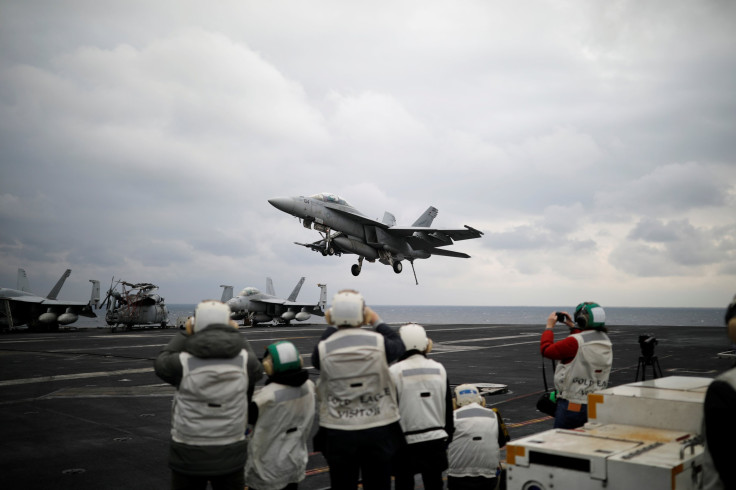Will The US Go To War? American Ships Prepare For North Korean Missile Launches With Japan, South Korea

The United States joined in military defense operations and training exercises with Japan and South Korea in the Sea of Japan this week following a series of North Korean ballistic missiles launches in direct defiance with United Nations sanctions since President Donald Trump took office in January.
The intergovernmental defense training was intended to "enhance tactical capabilities, increase self-defense, strengthen partnerships,” as well as improve "situational awareness," according to a Navy statement.
Read: Is US Considering Nuclear Attack After North Korea Missile Launches?
The U.S. added its USS Curtis Wilbur, a high-powered guided missile destroyer, to the international fleet of ships participating in essentially a show of force against the reclusive North Korean regime. South Korea and Japan also included naval destroyers to the defense mission, including the destroyer Sejong the Great and the JS Kirishima, respectively. Such ships are designed to launch guided missiles with specific targets and are capable of carrying out anti-air, anti-submarine and other wartime operations.

North Korean leader Kim Jong Un's regime denounced the trilateral military operations, claiming the U.S.-led activities were staging “drills of dropping bombs and making surprise attacks on the ground targets,” North Korean state news agency KCNA reported Tuesday.
North Korea has repeatedly defied U.N. sanctions ordering the nation to refrain from all ballistic missile launch tests. Kim’s government launched five missiles in a single week following Trump’s inauguration, with each “rocket launching drill” the north conducted "take to strike the bases of the U.S. imperialist aggressor forces in Japan," KCNA said.
Meanwhile, it remained unclear exactly how the U.S. might respond to rising tensions with the North Korean regime under Trump. Nikki Haley, the new U.S. ambassador to the U.N. under the Trump administration, declined to state whether the nation would support a nuclear missile attack against North Korea when speaking with reporters Wednesday.
"We are considering every option that’s on the table," Haley said after a U.N. meeting called to explore potential responses to North Korea’s missile launches. "The global community needs to understand every country is in danger from the actions of North Korea, we are not going to leave South Korea standing there with the threat of North Korea facing them and not help."
© Copyright IBTimes 2024. All rights reserved.












